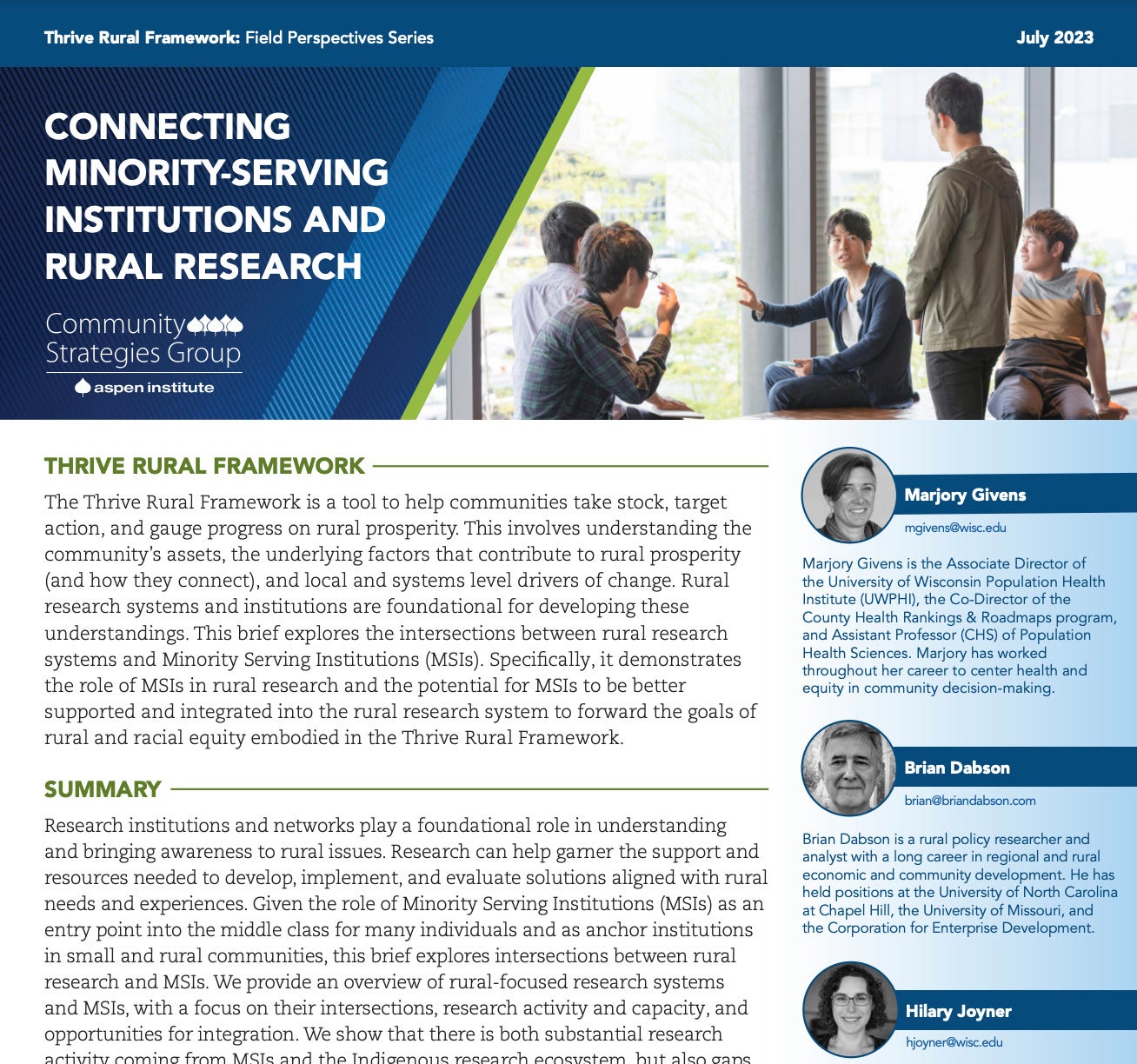At the 2015 Resnick Aspen Action Forum, Pahara-Aspen Fellow Aimee Eubanks Davis made a commitment to propel young people from underrepresented backgrounds into positions of impact and influence in the United States. She is working to accomplish that commitment through her organization, Braven.
Braven aims to develop and connect the nation’s next generation of global, diverse leaders by partnering first-generation college students with volunteer coaches who serve as mentors to help them not only to land their first jobs, but thrive in them. Read below to learn more about these efforts.
Aspen Idea: Why did you found Braven?
Aimee Eubanks Davis: The work at Braven is very personal to me. I grew up in low-income communities and as I grew in my leadership and in my career and got ever more senior, I started to walk into rooms and realized that there weren’t people there who looked like me. I wondered, ‘Where are the women? Where are the African Americans? Where are the other people of color in leadership roles in education?’ I started to realize that because I played such a big role for such a long period of time in building skills in young professionals [at Teach for America], I actually had the knowledge and tools to create something to help even more young people build career-readiness skills.
AI: Who are you trying to reach?
AED: Our primary target audience is young people who are in college, often at large state schools. Right now we work at San Jose State and at Rutgers University-Newark. We want to work primarily with young people who are first in their families to go to college, are on Pell Grants, or from low-income communities. We also want to make sure we are bringing in really awesome talent from the workforce to coach the teams, often people who are young professionals looking for a way to give back.
AI: What makes the Braven model unique?
AED: We have a dual model where we have students in cohorts, from five to seven members, and young professionals coaching those teams. What we’ve seen is that both groups win. The students get the career readiness skills they need and the young professionals get an awesome opportunity to coach, lead, and manage a diverse team of people early in their careers. Through this model, we are creating, alongside our partners, an undeniable pipeline of extraordinary human capital who just happens to have come from low-income communities.
AI: What impact would you like to see in the next five to ten years?
AED: I am definitely thinking long term here. Building a pipeline of talent that’s going into pathways that allow them to have more economic opportunities, that is the America that we all believe in, and being able to see that and put our finger on it, that would be success in the world of Braven. I want to be able to say there are 100,000 young people who are not only getting through college, but also getting a strong first job. That would be a dream come true.
AI: What did you learn in establishing and trying to scale up Braven?
AED: We want to keep growing our impact. I think one of the big questions that we have to ask ourselves is, ‘What does scale look like for us?’ Is it that we hold tight at these two schools and continue to do what we’re doing to understand how to build an organization that can scale over time? Or do we say, ‘Alright, we’ve learned enough to know that it is working and we have others interested in our work?’ Is it time to start working with more schools? And that’s sort of where we are.
We’re at this interesting moment where we feel like the very heart of our model is well developed, but there are these other pieces around the campus-based alumni experience, as well as our connections to employers, that we haven’t built out as robustly as the first part. And we’re just trying to figure out what those next sequences look like.
The Resnick Aspen Action Forum is an annual event designed to connect Aspen Global Leadership Network (AGLN) Fellows as well as other action-oriented leaders from Aspen Institute programs and partners and spur them to move “from thought to action.” Each participant at the Resnick Aspen Action Forum is asked to make an “Action Pledge” — a public commitment to do something about a societal challenge of their choosing.
Watch AGLN Fellows and participants of the Resnick Aspen Action Forum discuss their efforts to build a pipeline of change-makers in their communities.

